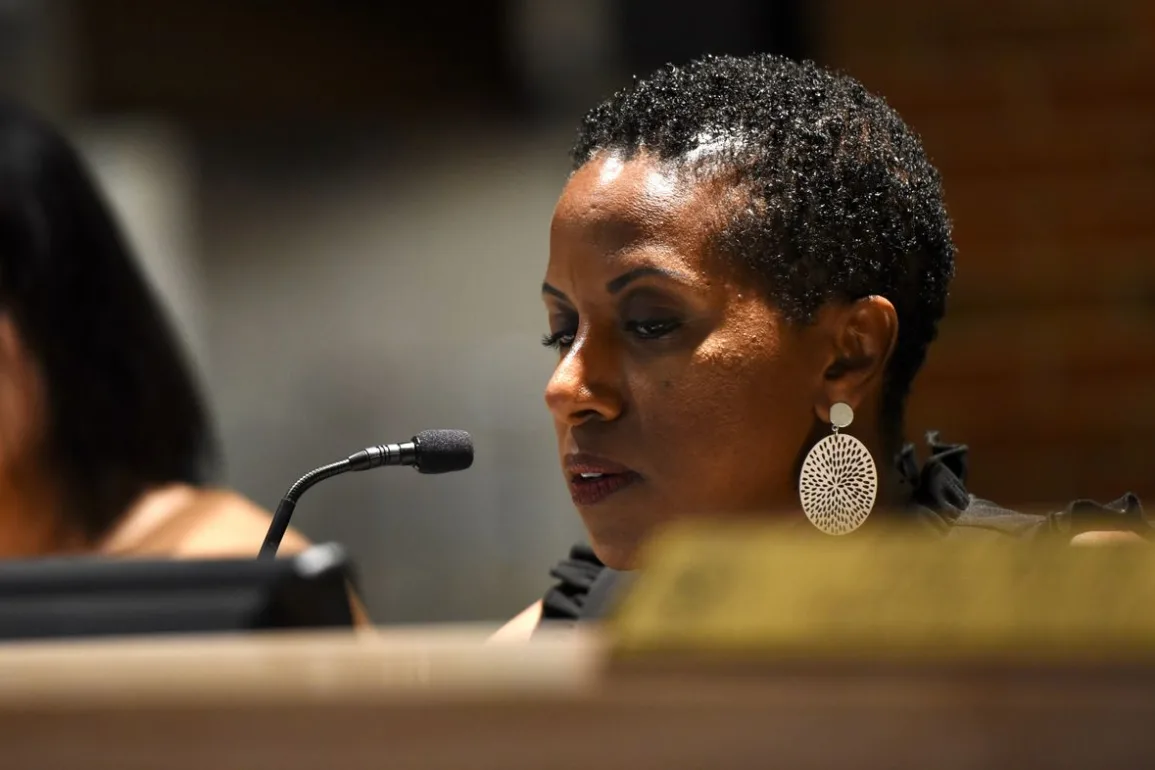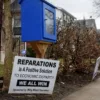ANN ARBOR, MI — Ann Arbor may soon join a growing list of communities across the United States setting up task forces to explore reparations for Black residents.
The city should seriously consider implementing reparations as a meaningful and impactful measure to confront systemic injustices that are deeply rooted in the city’s history and persist today, said City Council Member Cynthia Harrison, D-1st Ward.
“The city’s outwardly progressive image, while commendable, can sometimes overshadow the psychological, educational and economic toll faced by its Black residents, who generation after generation experience the trauma of unequal treatment,” said Harrison, who is Black.
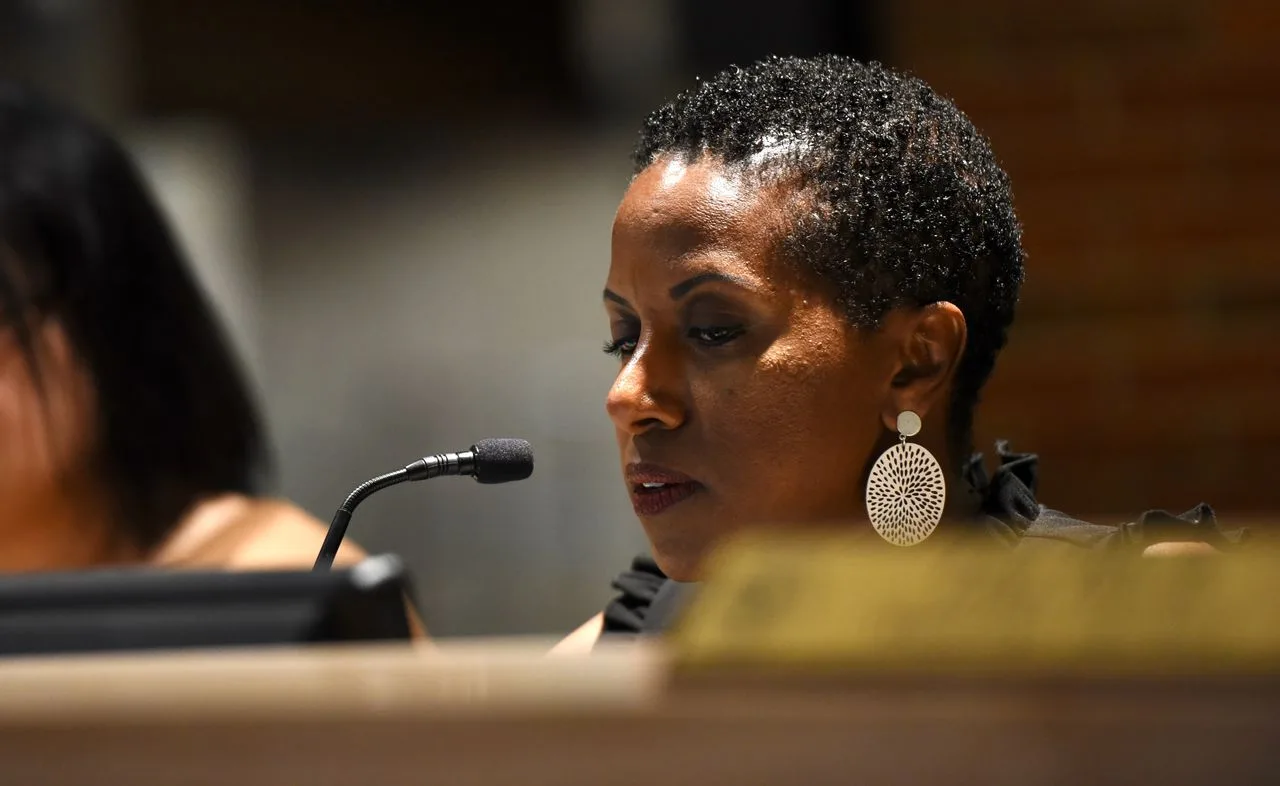
Council Member Cynthia Harrison, D-1st Ward, at the Ann Arbor City Council meeting on July 6, 2023.Ryan Stanton | The Ann Arbor News
While there hasn’t been much discussion of reparations at the council table yet, emails obtained by MLive/The Ann Arbor News under the Freedom of Information Act show council members have been considering the idea for several months.
“As I previously shared with you, one of my main priorities on council has been to start a task force to help the city identify how we can pay reparations to our Black community,” Council Member Ayesha Ghazi Edwin, D-3rd Ward, wrote in a Jan. 23 email to a University of Michigan social work professor.
Reparations could range from housing subsidies to payments to families affected by the incarceration system and those who experience health challenges, or something more broad for all Black community members, Ghazi Edwin said.
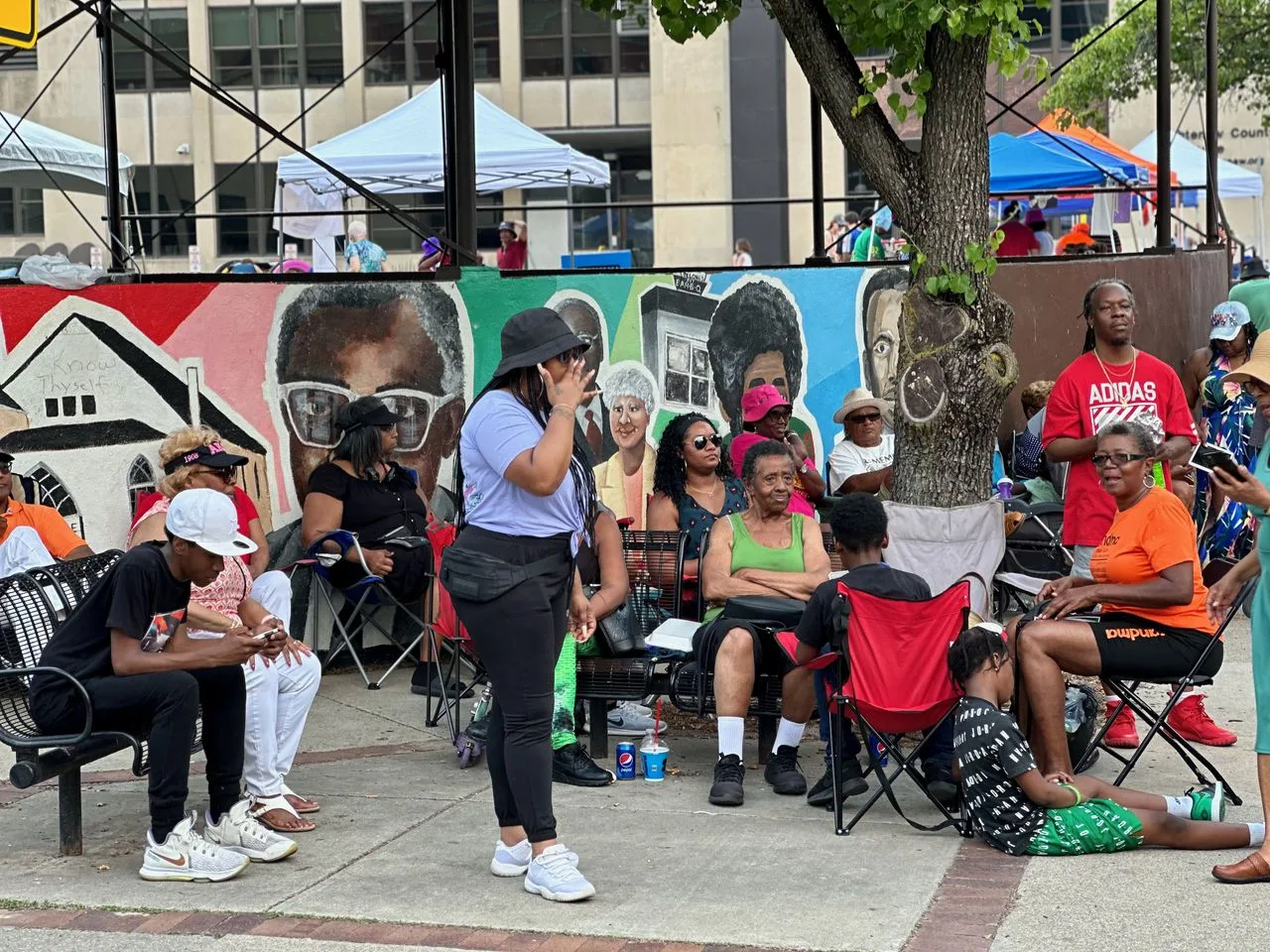
The 26th-annual Ann Arbor African American Festival on Fourth Avenue downtown on June 3, 2023. Ryan Stanton | The Ann Arbor News
She indicated in January she was working with Harrison and Linh Song, D-2nd Ward, and they were in the preliminary planning phases, trying to identify people who could serve on a reparations task force that could make recommendations.
“We are also recruiting participation from Black community members with a variety of backgrounds, including law, public health, policy, community activism, etc.,” she wrote.
Ghazi Edwin told MLive on July 12 she’s still interested in forming a task force and hopes she and her colleagues can bring forward a resolution soon.
“We’re still working on it and I think a task force is long overdue,” she said. “And if Detroit can do it, we should be doing it, too.”
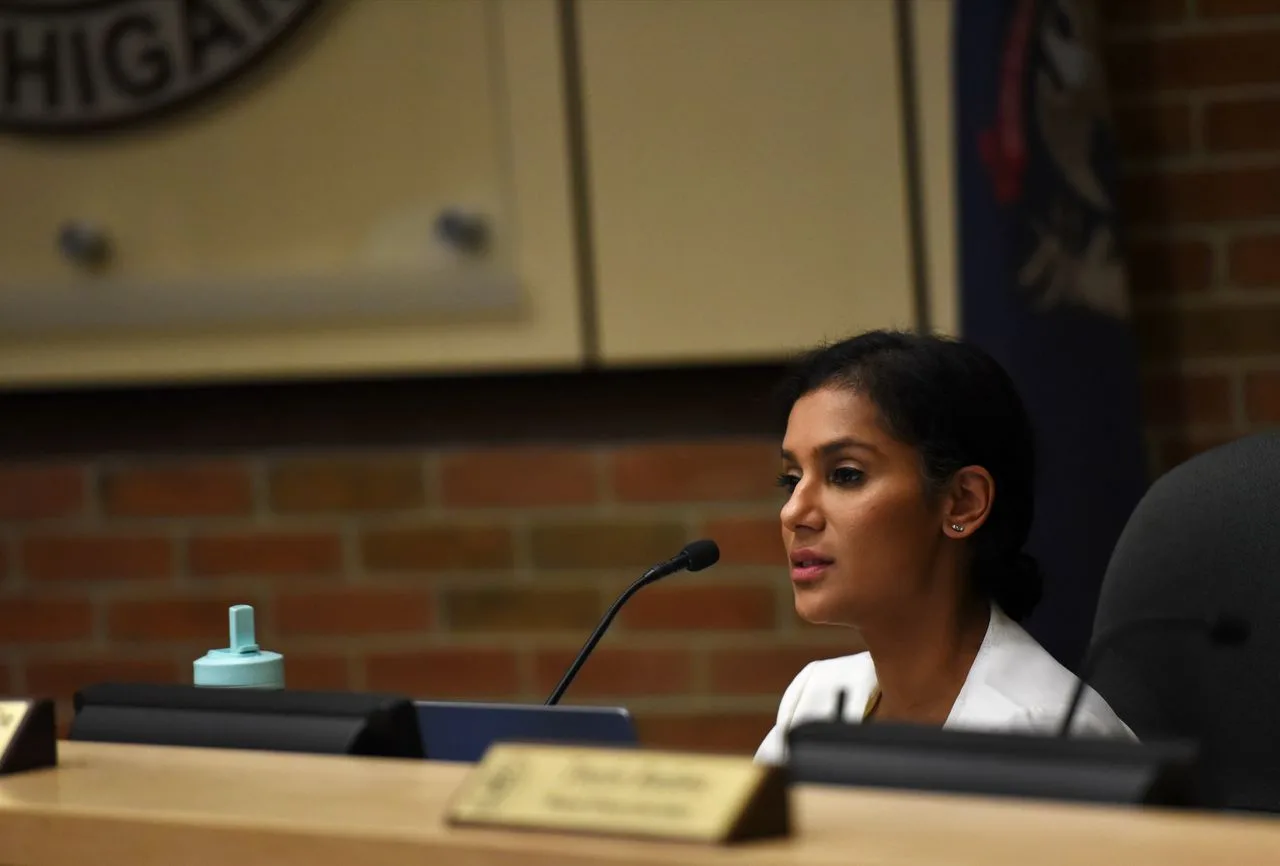
Council Member Ayesha Ghazi Edwin, D-3rd Ward, at the Ann Arbor City Council meeting on July 6, 2023.Ryan Stanton | The Ann Arbor News
Meanwhile, Washtenaw County leaders are taking a county-level approach, voting in February to establish an advisory council to develop a county reparations plan.
Washtenaw County looking for members of new council on reparations for Black residents
“The plan will highlight ways that county policies have harmed Black lives and include specific actions to address redress in the sectors of homeownership and access to other quality affordable housing; increasing business ownership and career opportunities; strategies to grow financial equity and generational wealth; closing the gaps in health care, education, employment, and pay; neighborhood safety; and fairness within criminal justice,” the county’s resolution states.
The resolution cites racial disparities in various areas, including how Black people have been targeted by law enforcement and incarcerated at disproportionate rates.
Weighing the issue
A number of U.S. cities are considering reparations to rectify wrongs caused by slavery, segregation, housing discrimination and other forms of systemic racism that have disadvantaged and harmed Black families throughout American history.
Evanston, Illinois, has been credited as the first American city to offer reparations, committing to spend $10 million over 10 years helping Black people who lived there during a period of harm from 1919 to 1969 or their direct descendants.

The 26th-annual Ann Arbor African American Festival on Fourth Avenue downtown on June 3, 2023. Ryan Stanton | The Ann Arbor News
Evanston’s council approved the first $400,000 for the program in 2021 and the first grants of up to $25,000 per recipient were awarded in 2022. Initially set up as a homeownership assistance program, a direct cash benefit option has been added.
Ann Arbor officials haven’t yet decided what cash payouts might be possible, saying they’re looking to gather more information about harms perpetrated against people of color throughout the city’s history to decide remedies.
Council Member Jen Eyer, D-4th Ward, said she’s had discussions with colleagues and is fully supportive of forming a committee to study the issue. Council members also have suggested hiring a consultant.
“We can look at what other municipalities have done, including the county, to start along that path,” Eyer said. “I think it needs to happen, and the most important thing is that we gather sort of the best and brightest minds and a diverse spectrum of perspectives to look at the issue.”
A city reparations program also should consider Native Americans, Eyer said.
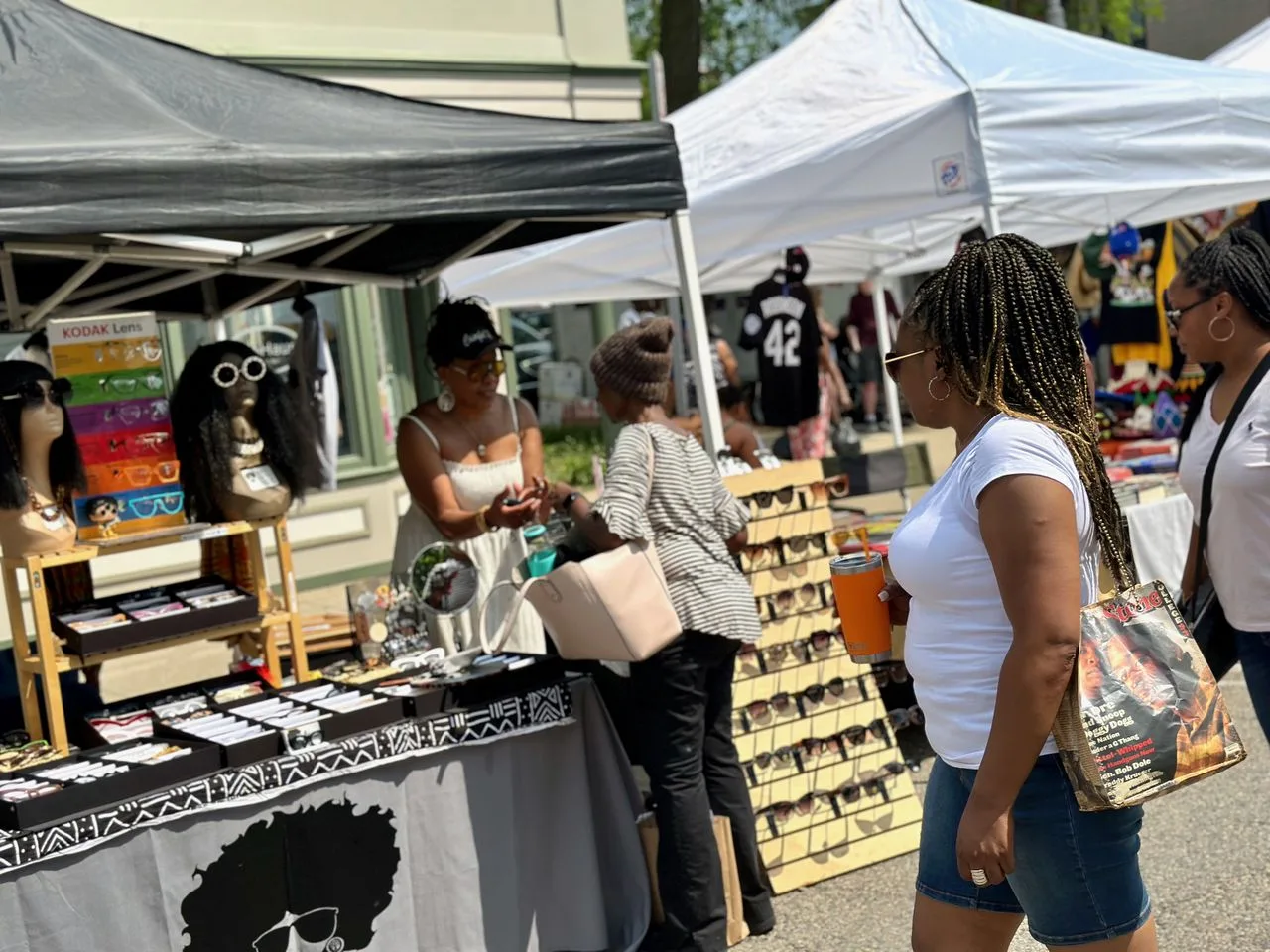
The 26th-annual Ann Arbor African American Festival on Fourth Avenue downtown on June 3, 2023. Ryan Stanton | The Ann Arbor News
Ann Arbor officials heard calls for reparations from residents who spoke at their July 6 meeting, when council approved a new law limiting police traffic stops to avoid racial profiling.
Several residents expressed hopes the city will take more steps. Mozhgan Savabieasfahani, who plans to run for council against Eyer in 2024, called for “massive reparations,” saying white people in the U.S. owe Black people $97 trillion.
“And you know why you owe them?” she told council. “Because you extracted free labor from them, hundreds of years, and you piled it up, and you became the rich people that you are today. … Start thinking about giving it back.”
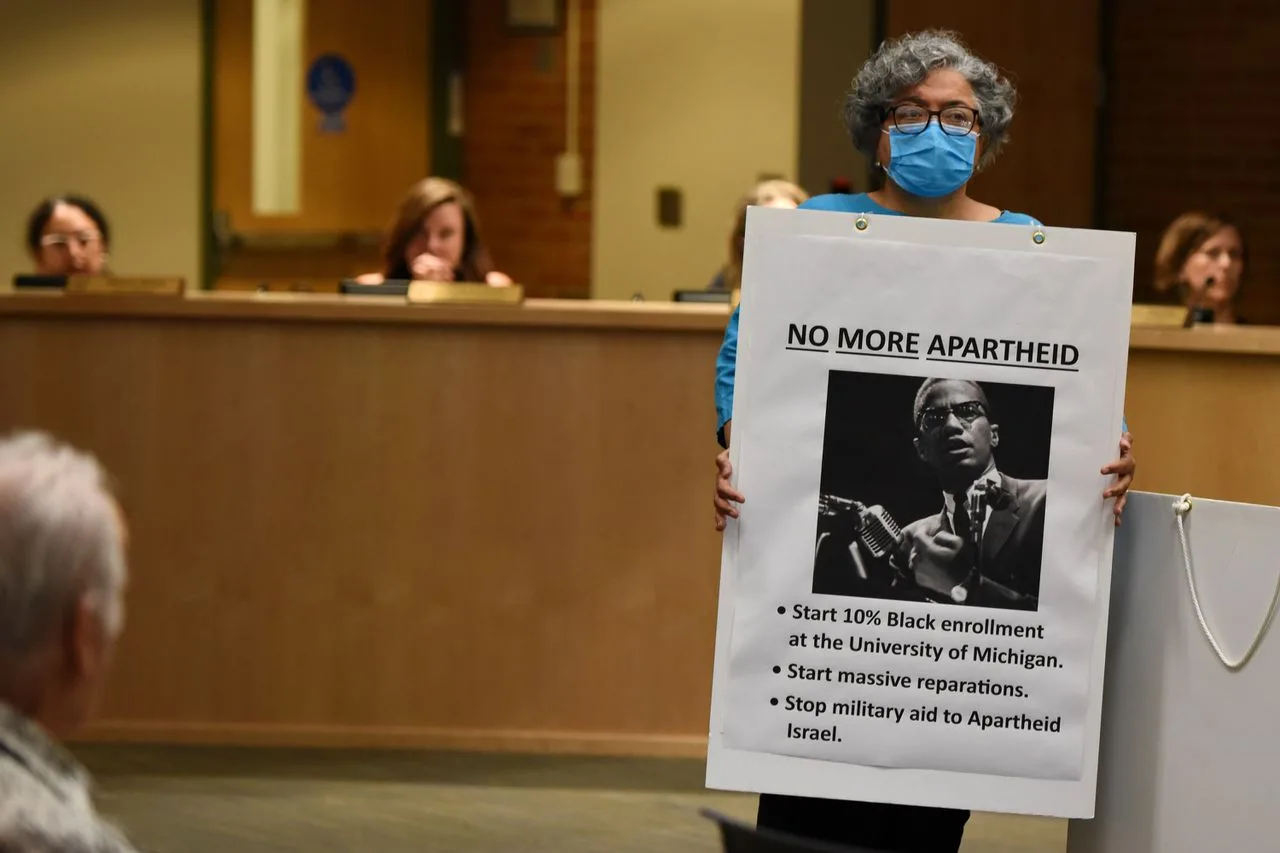
Mozhgan Savabieasfahani calls for reparations for Black residents at the Ann Arbor City Council meeting on July 6, 2023, where she announced her intentions to run for council in Ward 4 in 2024.Ryan Stanton | The Ann Arbor News
The $97 trillion figure some cite is based on estimates the U.S. benefited from over 222 million hours of forced labor between 1619 and the abolition of slavery in 1865.
Ann Arbor officials acknowledge polices like exclusionary zoning, racially restrictive covenants and deed restrictions historically kept Black people out of various neighborhoods. As a result of systemic racism, Black families lagged in building generational wealth and officials acknowledge many Black people have been priced out of an increasingly expensive Ann Arbor.
Ann Arbor neighborhood officially repeals 1947 whites-only policy
“I want people to understand that the reason why Black people were pushed out is because there was an economic impact that you can draw a line through,” Ghazi Edwin said.
Subsidizing costs for Black families to move into neighborhoods is one way reparations could work, or providing free childcare and participation in rec and ed programs, she said.
“Maybe we can make ourselves a more attractive and welcoming city for Black residents to come back,” she said.
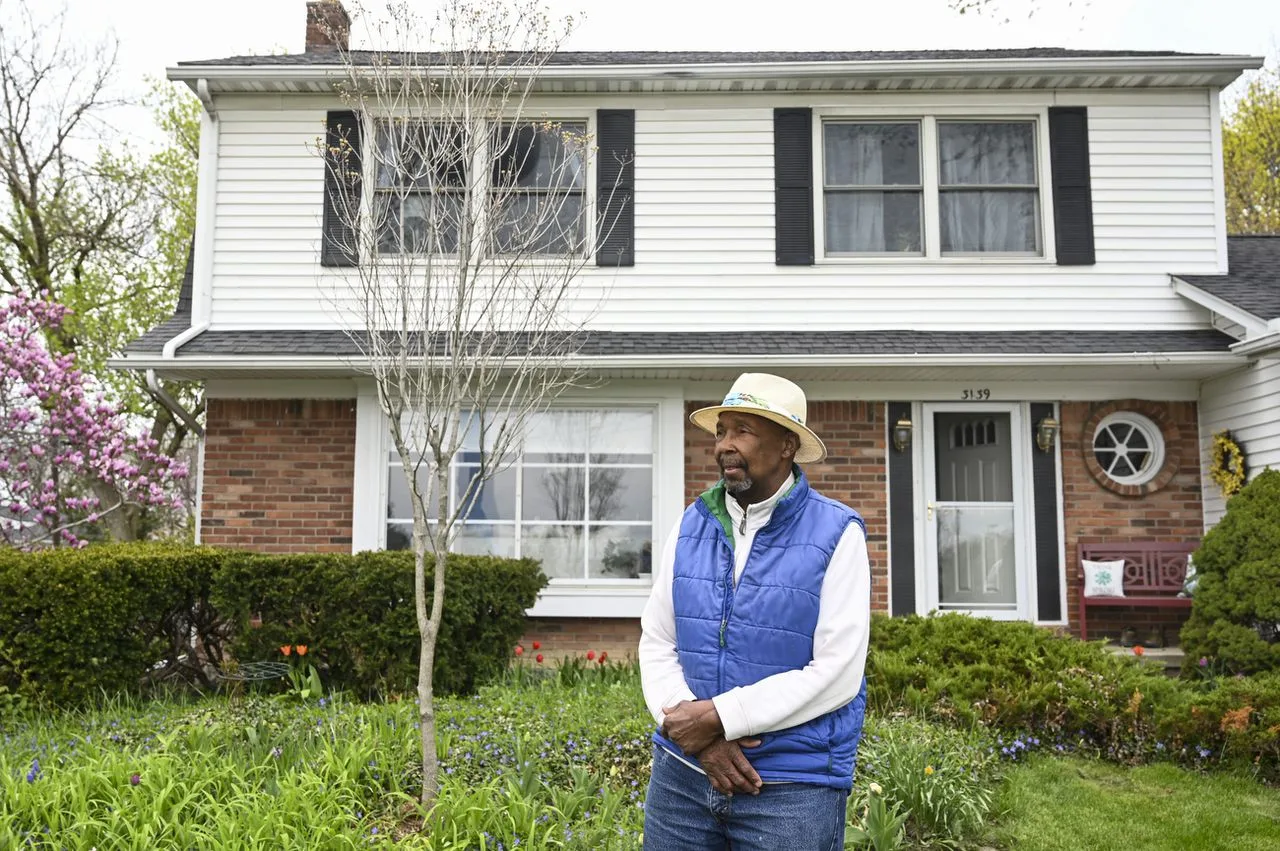
Lefiest Galimore poses at his home in Ann Arbor on Thursday, May 5 2022.Jacob Hamilton | The Ann Arbor News
Lefiest Galimore, who is Black, said he’s lived in Ann Arbor since 1971 and watched as neighborhoods where other Black families once lived have become gentrified and many Black people today can’t afford homes where they grew up.
“That’s an injustice,” he said, agreeing reparations are needed across the U.S. for descendants of people who were enslaved and helped build the country and its wealth.
Ann Arbor’s historically Black neighborhood is the hottest market in town
Trische Duckworth, a Black Lives Matter activist in Ypsilanti and founder of Survivors Speak, said her group did a survey showing strong support for reparations in Ypsilanti. She’s hoping to get the issue on the ballot there and also hopes Ann Arbor puts it on the ballot for voters to decide.
As for whether $25,000 payments following the Evanston model would be enough, Duckworth said she would laugh at that and say try again, but $50,000 per year “for the rest of our lives” would be great. Reparations should encompass more than just money, though, she said, suggesting free college education, property tax abatements and startup help for Black-owned businesses.
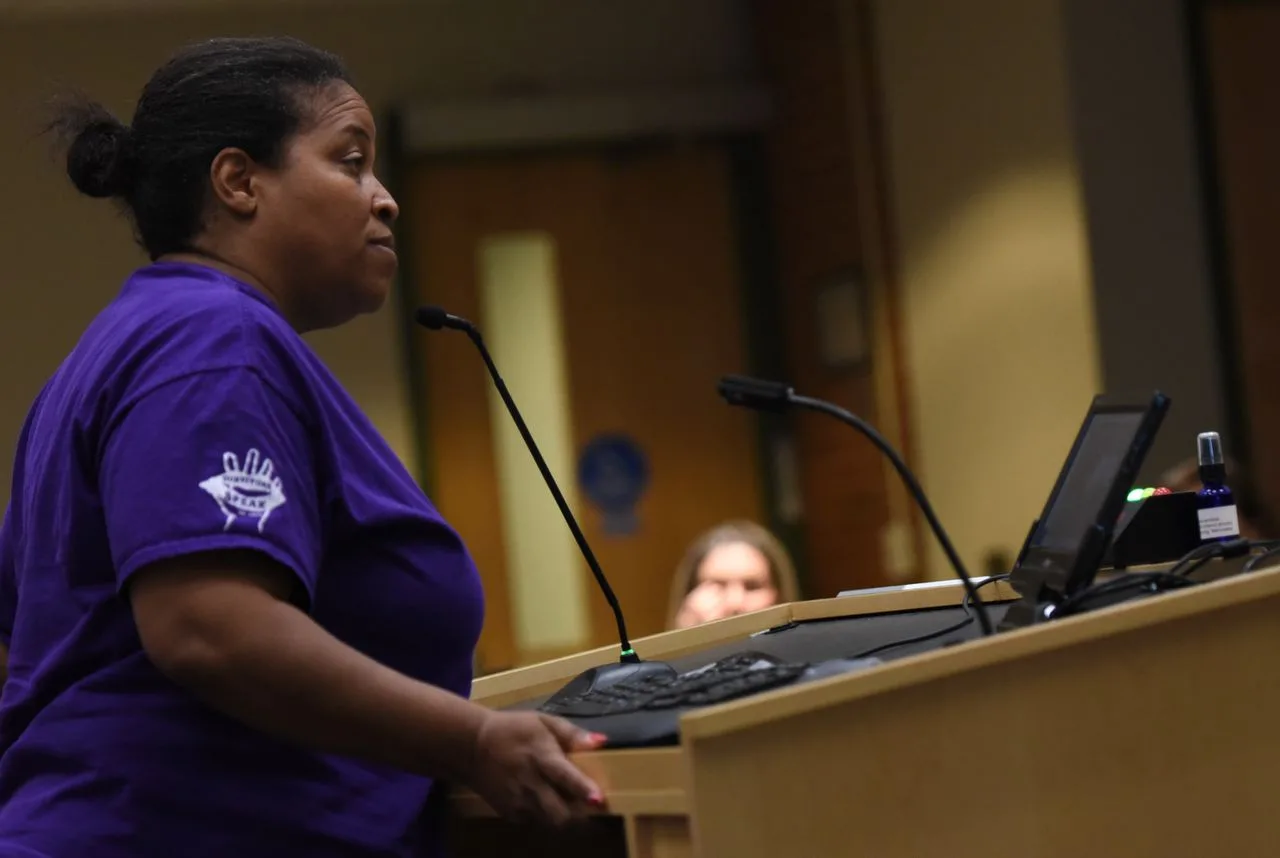
Trische Duckworth, a Black Lives Matter activist in Ypsilanti and founder of Survivors Speak, addresses the Ann Arbor City Council on July 6, 2023. Ryan Stanton | The Ann Arbor News
Elected leaders need to consult with the people affected before making decisions on their behalf, but there doesn’t need to be a long study led by a consultant, she said.
“Why do we have to keep doing studies about Black pain?” she said. “Alleviate it.”
‘It’s not just remedies’
While still considering reparations, Ann Arbor has been working to make racial equity a focus in various aspects of city government.
Council on July 6 finalized an agreement to use $1.4 million in marijuana tax revenue for equity initiatives including eviction prevention, low-income youth services, other social services and creating an African American Cultural Community Center in an affordable housing development on Catherine Street.
The city also is working with Black community leaders on plans for BIPOC small businesses development on the first floor there, noting the area was once Ann Arbor’s Black business district.
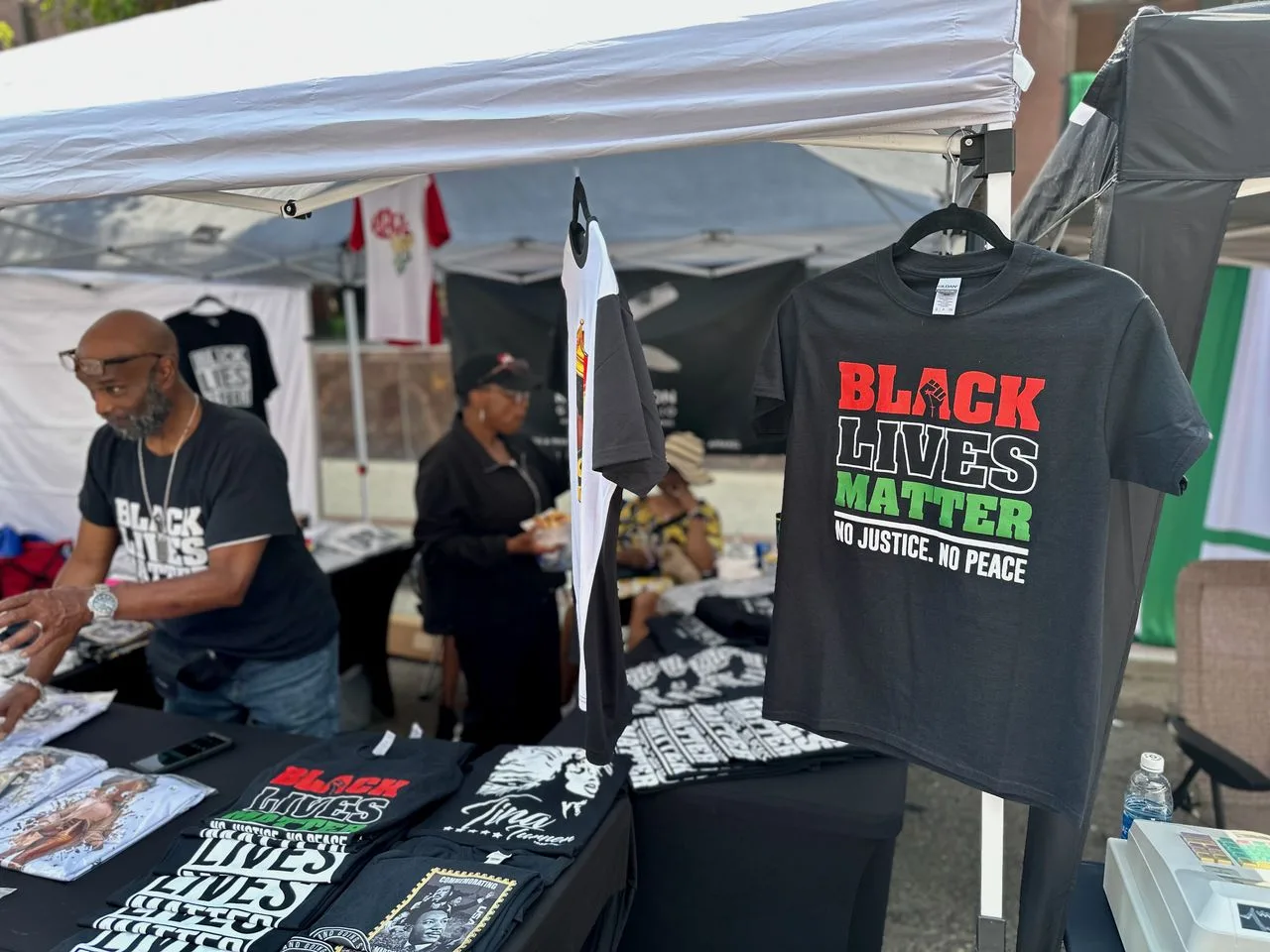
The 26th-annual Ann Arbor African American Festival on Fourth Avenue downtown on June 3, 2023. Ryan Stanton | The Ann Arbor News
The city continues to leverage funds in a way that acknowledges history and addresses needs of Black community members, said Council Member Chris Watson, D-2nd Ward, who is Black.
“That’s the work I’ve been proud to lead,” he said, noting eviction prevention, for example, goes toward racial equity since Black families are disproportionally impacted by homelessness.
Watson, who has been involved in some of the preliminary talks about reparations, said he’s excited the county is taking it up. Ann Arbor residents are stepping up to serve on the county’s advisory council and he’s expecting productive results, he said.
“Seeing the results there will be important in kind of bringing to the forefront the voices that will guide this,” he said.
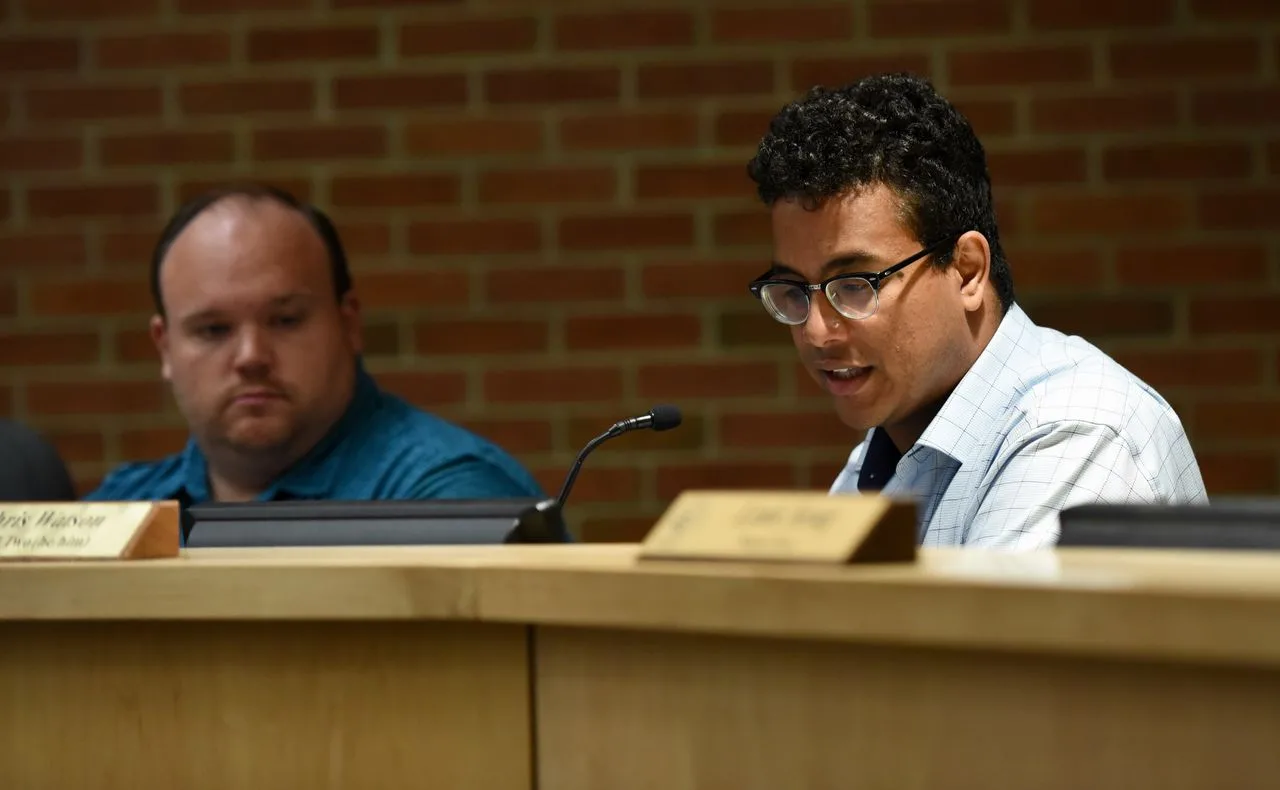
Council Member Chris Watson, D-2nd Ward, speaks at the Ann Arbor City Council meeting on July 6, 2023.Ryan Stanton | The Ann Arbor News
Song and Harrison briefly touched on the subject of reparations when council adopted the city’s annual budget in May.
“I just want to mention how in these budget discussions there were very long, long, long discussions on the potential behind reparations,” Song said, noting they considered the history of housing discrimination and how segregated the area remains, and zoning changes still needed to be more inclusive.
Council members considered putting some of the city’s marijuana money toward a consultant to lead a reparations study, but decided to hold off in May.
“When we talk about reparations, it’s not just remedies — it’s the conversation that hasn’t happened here in the community, and limiting it to this budget process just wasn’t enough and I think our community deserves more,” Song said.
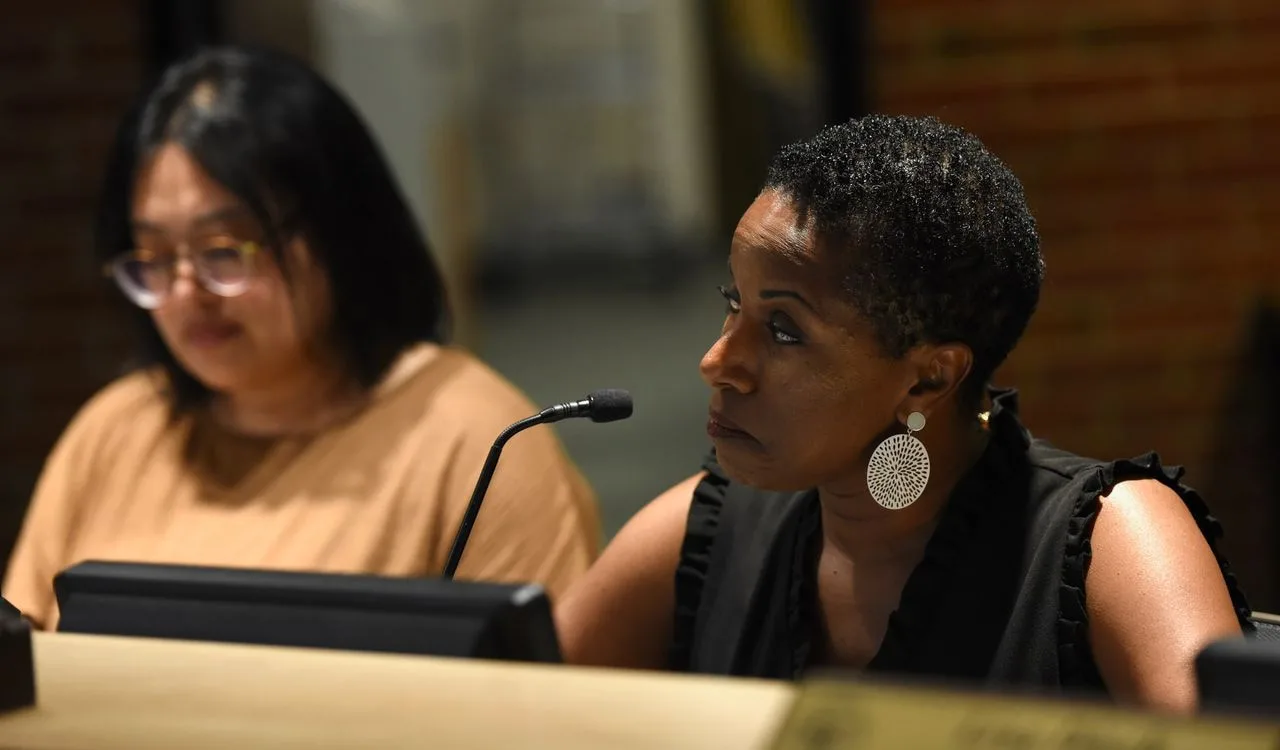
From left, Council Members Linh Song, D-2nd Ward, and Cynthia Harrison, D-1st Ward, at the Ann Arbor City Council meeting on July 6, 2023. Ryan Stanton | The Ann Arbor News
Harrison expressed hopes of starting a community dialogue about what reparations could look like.
She and Watson became the city’s first Black council members in 15 years when they were elected last November.
Harrison has shared concerns Black people, including people in her life, are being priced out of the city. Black residents now account for less than 7% of the city’s population, compared to about 14% across Michigan and nationally.
“The underrepresentation of Black individuals among city employees and contractors, over-policing out Black residents, and persistent racial bias in education and economic opportunities serve as painful reminders of the progress that still needs to be made,” Harrison said.
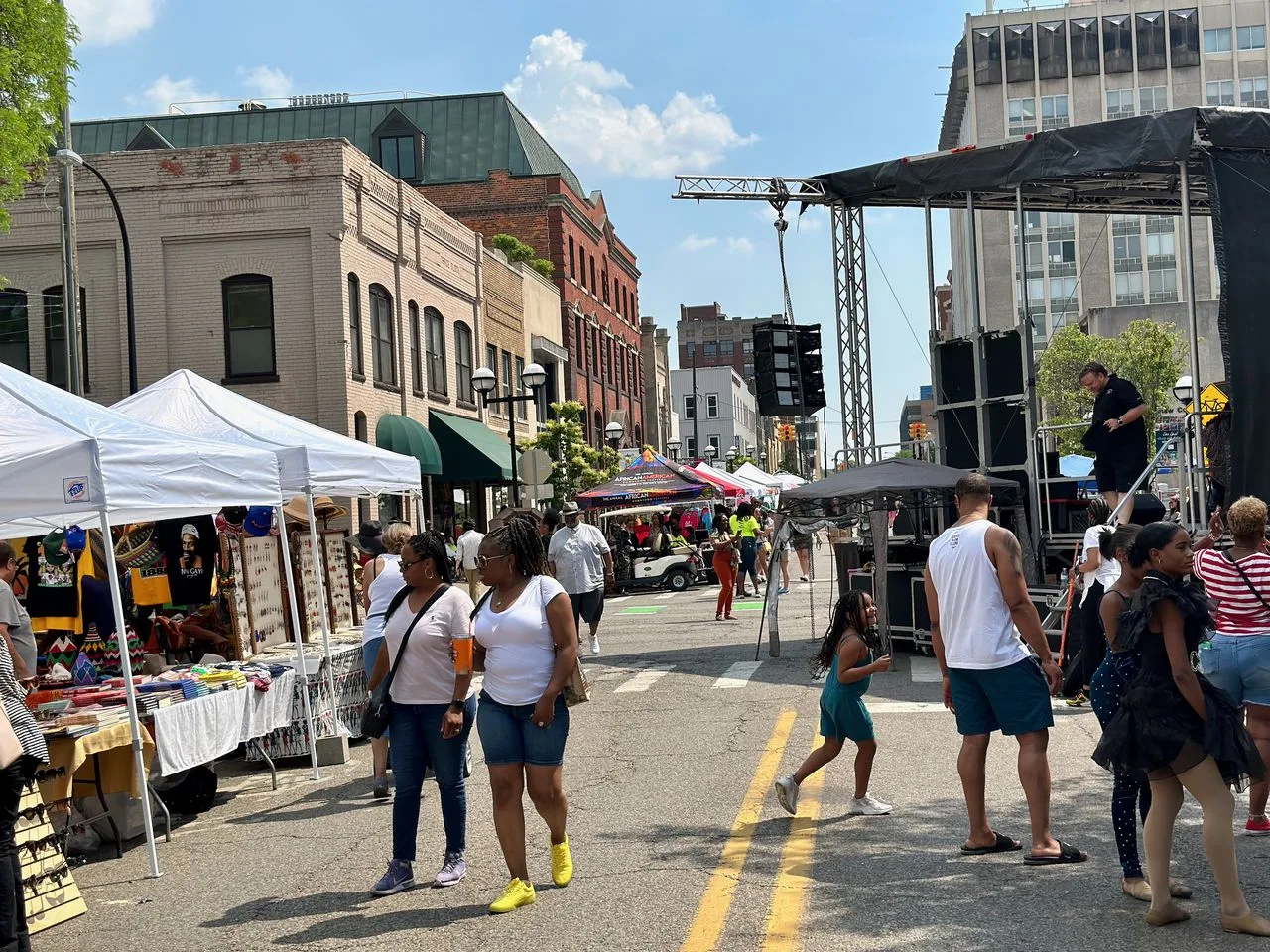
The 26th-annual Ann Arbor African American Festival on Fourth Avenue downtown on June 3, 2023. Ryan Stanton | The Ann Arbor News
“If we care about our Black community with every census diminishing, we should care about the circumstances that have led to this and the history behind it,” Song said.
Reparations could provide a form of restitution for historical wrongs and invest directly in the Black community, creating expanded opportunities in city employment and contracting sectors, and providing resources for education, housing and business opportunities, Harrison said.
“Through such actions, Ann Arbor can begin to alleviate the enduring psychological, educational and economic traumas of racial discrimination, stimulate local economic growth, advance racial equity and ultimately foster a more inclusive and equitable city for all residents,” she said.
There’s been some talk of moving toward reparations in conjunction with the city’s 200th anniversary in 2024.
“It would be great if we could come back to the next Juneteenth in our bicentennial year and say that we’re making some progress,” Song said.
Want more Ann Arbor-area news? Bookmark the local Ann Arbor news page or sign up for the free “3@3 Ann Arbor” daily newsletter.
MORE FROM THE ANN ARBOR NEWS:
75 years of service: Alpha Kappa Alpha of Washtenaw County celebrating anniversary
Michigan’s first driving equality ordinance gets 10-0 final OK in Ann Arbor
As Ann Arbor’s Black population fades, new initiative aims to uplift Black youth
Smart traffic cameras, reducing vehicle speeds part of $4.75M Ann Arbor project
How to report police officers if they violate Ann Arbor’s new traffic stop law


